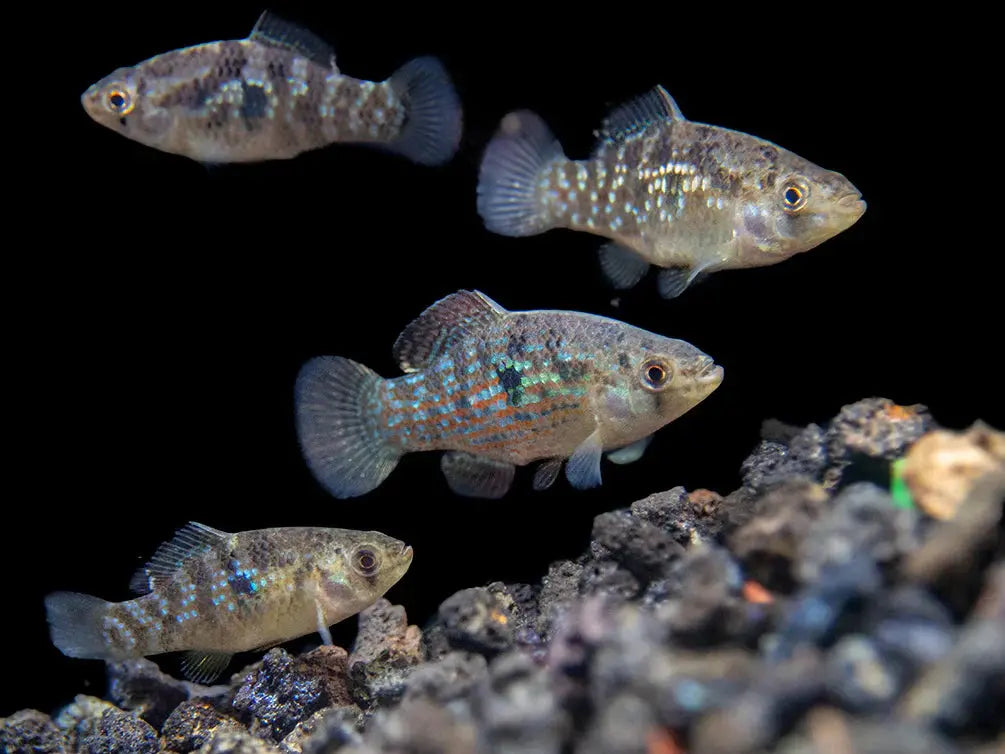🐟 Florida Flagfish Care Guide (Jordanella floridae)
🌟 Overview The Florida Flagfish is a colorful North American killifish named for its striking red, blue, and green patterns that resemble the U.S. flag. Native to Florida’s marshes, ponds, and slow-moving streams, these hardy fish are excellent algae eaters and are ideal for aquarists looking for a unique yet low-maintenance species.
🔑 Quick Facts
- Scientific Name: Jordanella floridae
- Common Name: Florida Flagfish
- Origin: Florida, USA (native to North America)
- Size: 2–2.5 inches (5–6 cm)
- Lifespan: 3–5 years
- Temperament: Semi-aggressive (especially males)
- Care Level: Easy to Moderate
🏠 Tank Requirements
- Minimum Tank Size: 20 gallons
- Water Temperature: 68–78°F (20–25°C)
- pH: 6.5–8.0
- Hardness: 6–20 dGH
- Aquascape: Dense planting with open swimming space; floating plants recommended
- Filtration: Moderate flow, clean water
🍽️ Diet
Florida Flagfish are omnivores with strong algae-grazing habits:
- Algae and biofilm (excellent natural algae control)
- High-quality flakes and pellets
- Vegetables: blanched zucchini, spinach, peas
- Live/frozen foods: brine shrimp, bloodworms, daphnia
🧑🤝🧑 Tank Mates
- Best with peaceful to semi-aggressive species like mollies, swordtails, danios, rainbowfish, and corydoras
- Avoid slow-moving fish with long fins (e.g., bettas, angelfish) as males may nip
- Can be kept in species-only tanks for breeding
🧠 Behavior & Tips
- Males are more colorful with stronger patterning, females are rounder and less vibrant
- Known to nip fins if not kept in the right community setup
- Excellent algae eaters, especially hair algae
- Keep 1 male with 2–3 females to reduce aggression
❓ FAQ
Q: Are Florida Flagfish good algae eaters?
A: Yes, they are one of the best natural algae grazers in the hobby.
Q: Do they need to be kept in groups?
A: They can be kept in pairs or small groups, but avoid multiple males in small tanks.
Q: Can Florida Flagfish live outdoors?
A: Yes, they tolerate cooler temperatures and can thrive in outdoor tubs and ponds during warmer months.
Q: How long do they live?
A: Typically 3–5 years with good care.
